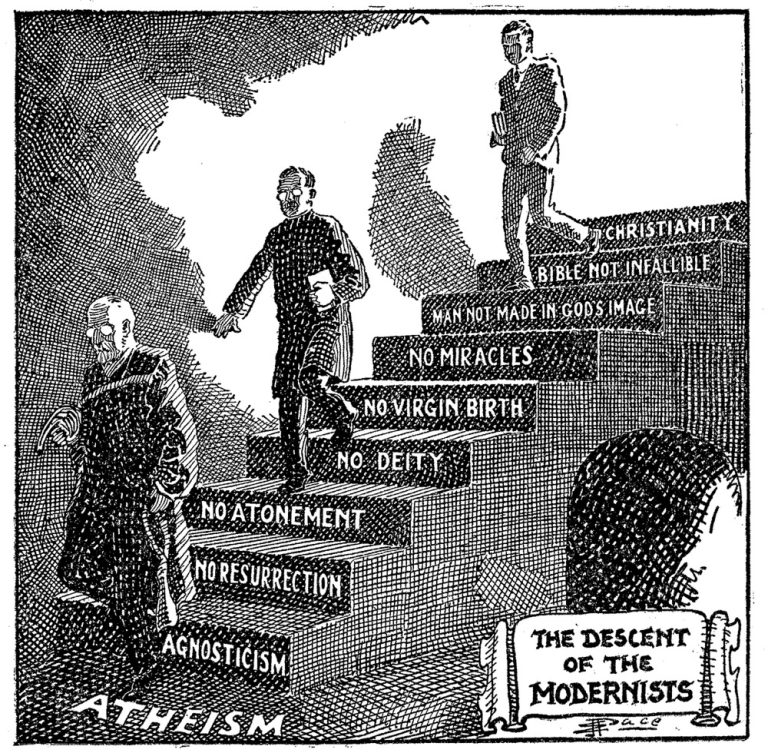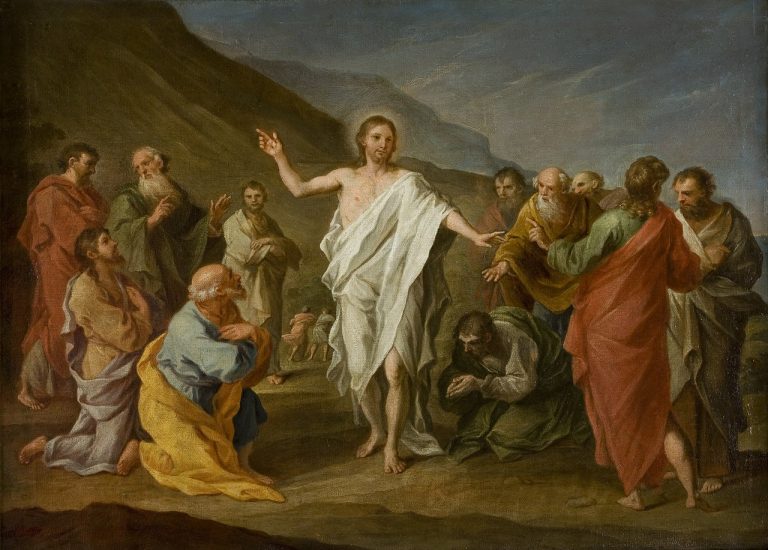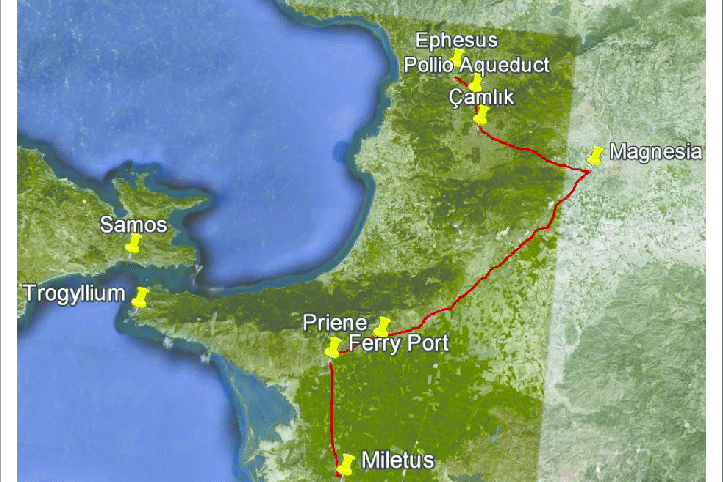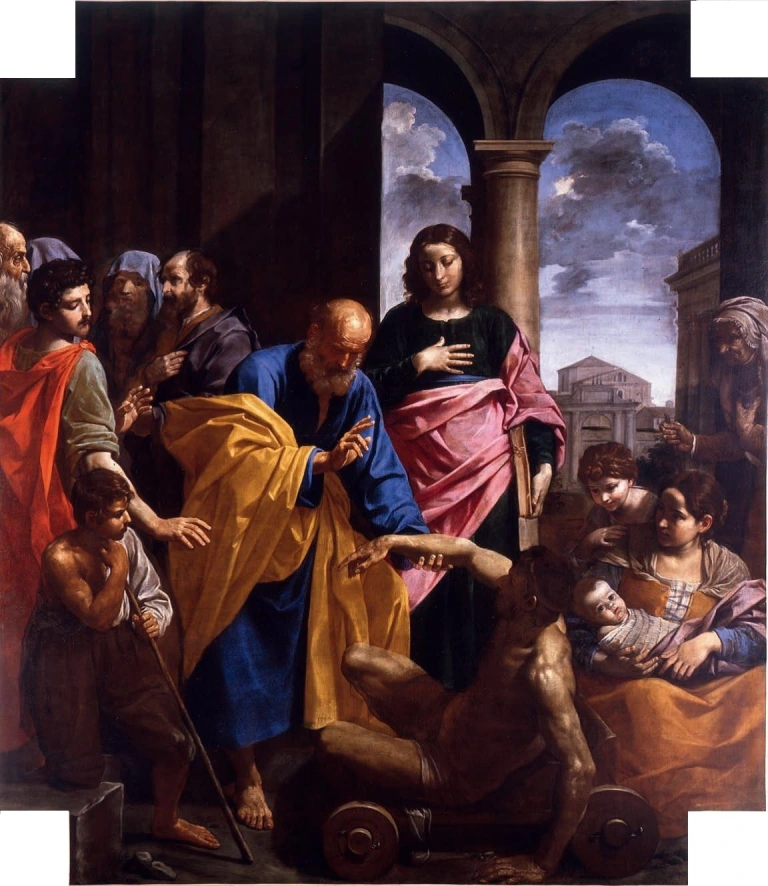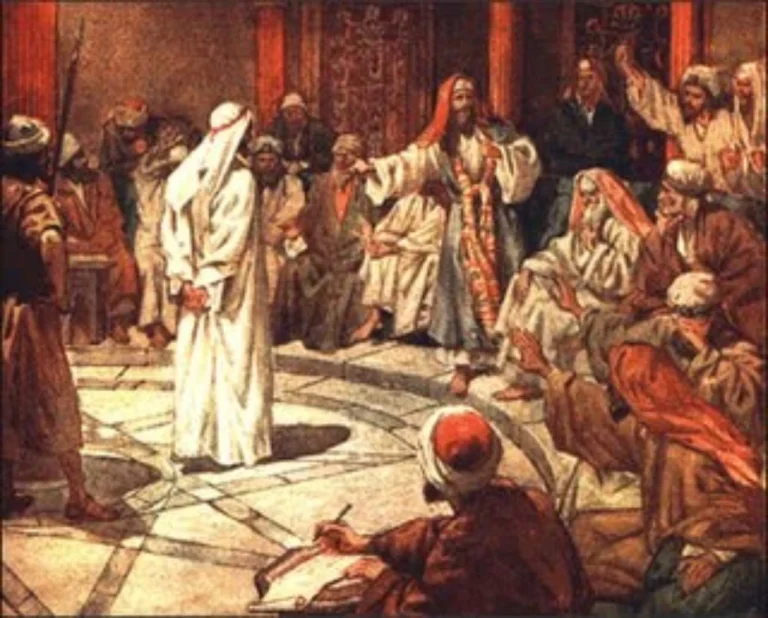In the Miracle of the Loaves and Fishes, Jesus fed the multitude. Then, the disciples got into a boat to cross the Sea of Galilee. A storm arose. Jesus appeared, walking on the water:
After the five thousand had eaten and were satisfied,
Jesus made his disciples get into the boat
and precede him to the other side toward Bethsaida,
while he dismissed the crowd.
And when he had taken leave of them,
he went off to the mountain to pray.
When it was evening,
the boat was far out on the sea and he was alone on shore.
Then he saw that they were tossed about while rowing,
for the wind was against them.
About the fourth watch of the night,
he came toward them walking on the sea.
He meant to pass by them.
But when they saw him walking on the sea,
they thought it was a ghost and cried out.
They had all seen him and were terrified.
But at once he spoke with them,
“Take courage, it is I, do not be afraid!”
He got into the boat with them and the wind died down.
They were completely astounded.
They had not understood the incident of the loaves.
On the contrary, their hearts were hardened.
The disciples, not just the first 12, but every believer in every age, is mystified by” the incident of the loaves.” So, how does the passage begin: “Jesus made His disciples get into the boat and go across the sea toward Bethsaida,”, which means “House of the hunt” in Hebrew. Interesting that He “made” the disciples get into the boat. I don’t think there’s another time in Scripture where He has to “make” them, force them, order them, to do what He wants.
The explanation is at the end: “They had not understood the incident of the loaves. On the contrary, their hearts were hardened.” Today’s Reading is the mystery His disciples in every age must solve.
Catholic Fundamentalism suggests: The disciples suddenly realized the enormity of the fact that He actually caused the loaves and fishes to materialize out of nothing. “How did He do that?” was quickly replaced with, “If He can make complicated things like bread and fish, why isn’t He simply giving us, and everyone, whatever is needed? Why do we have to work and suffer? Why do we have to collect donations, give the money to Judas, have him buy food, lodging, and the things we need? He can just make whatever we need appear! If He can have loaves and fishes appear, He could give us silk blankets at night! He could give us bags of diamonds for us and our friends! Why aren’t we living like kings?”
That’s why the passage ends with “They had not understood the incident of the loaves. On the contrary, their hearts were hardened.” Heart-hardening happens to many disciples today. “Why won’t He buy me a Mercedes Benz? Why won’t he cure my beloved’s cancer?” As believers better understand the vastness, speed, and ease which which He can program and download what He wants, many resent Him for not doing more for them. In every age, when people think about how much He could have given us, “hearts were hardened”
What His first disciples had discovered in that miracle is more easily understood by the approach Catholic Fundamentalism has developed: “God can program in particles and energies.” Jesus simply ordered His angelic Programming Assistants program and download the necessary loaves and fishes.
An even greater programming took place in the Disciple’s minds. They were made to understand that The Loving and All Powerful God had something more important for them than wallowing in material things. “We’re here to lead people to give, not get. We’re here to encourage focus on The Loving Programmer because He is infinitely greater than any of the entities He has programmed. I am sorry, Jesus, for having been distracted by lesser things. Thank you for letting me choose you over them.” When that happens, the wild winds and storms are stilled.
Today’s Reading is the mystery His disciples in every age must solve. In our time, we see how easily He could program gold nuggets to appear before us on a path. Some see that and are resentful that He does not unload riches before them. “Hearts were hardened” applies.
Catholic Fundamentalism helps many relate to God. Thinking of Him as “The Loving Programmer” causes a mental reordering that makes salvation easier. We are thankful for what we do have, not resentful for what we do not. That opens a doorway to salvation.




